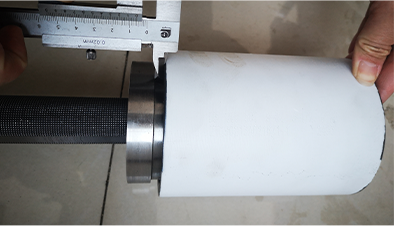- Afrikaans
- Albanian
- Amharic
- Arabic
- Armenian
- Azerbaijani
- Basque
- Belarusian
- Bengali
- Bosnian
- Bulgarian
- Catalan
- Cebuano
- Corsican
- Croatian
- Czech
- Danish
- Dutch
- English
- Esperanto
- Estonian
- Finnish
- French
- Frisian
- Galician
- Georgian
- German
- Greek
- Gujarati
- Haitian Creole
- hausa
- hawaiian
- Hebrew
- Hindi
- Miao
- Hungarian
- Icelandic
- igbo
- Indonesian
- irish
- Italian
- Japanese
- Javanese
- Kannada
- kazakh
- Khmer
- Rwandese
- Korean
- Kurdish
- Kyrgyz
- Lao
- Latin
- Latvian
- Lithuanian
- Luxembourgish
- Macedonian
- Malgashi
- Malay
- Malayalam
- Maltese
- Maori
- Marathi
- Mongolian
- Myanmar
- Nepali
- Norwegian
- Norwegian
- Occitan
- Pashto
- Persian
- Polish
- Portuguese
- Punjabi
- Romanian
- Russian
- Samoan
- Scottish Gaelic
- Serbian
- Sesotho
- Shona
- Sindhi
- Sinhala
- Slovak
- Slovenian
- Somali
- Spanish
- Sundanese
- Swahili
- Swedish
- Tagalog
- Tajik
- Tamil
- Tatar
- Telugu
- Thai
- Turkish
- Turkmen
- Ukrainian
- Urdu
- Uighur
- Uzbek
- Vietnamese
- Welsh
- Bantu
- Yiddish
- Yoruba
- Zulu
Teflon Coupling Applications and Benefits in Modern Engineering Solutions
The Versatile World of Teflon Coupling Enhancing Performance and Durability
In the realm of engineering and manufacturing, the term coupling refers to a device used to connect two shafts together to transmit power. Among the various materials used in the production of couplings, Teflon has emerged as a popular choice, owing to its unique properties that enhance performance and durability. This article delves into the significance of Teflon coupling, its benefits, applications, and the reasons behind its increasing prevalence in industrial settings.
Teflon, known scientifically as polytetrafluoroethylene (PTFE), is a synthetic fluoropolymer that possesses outstanding chemical resistance, low friction, and a wide operating temperature range. These characteristics make Teflon an ideal material for couplings, especially in applications where corrosion, wear, and temperature extremes are concerns. Unlike traditional metal or rubber couplings, Teflon couplings are less prone to degradation, ensuring a longer lifespan and reduced maintenance costs.
Benefits of Teflon Coupling
1. Chemical Resistance One of the standout features of Teflon is its unparalleled resistance to corrosive substances. In industries such as chemical processing, pharmaceuticals, and food production, environments can be harsh. Teflon couplings can withstand exposure to acids, bases, and solvents, making them essential components in processes that involve aggressive chemicals.
2. Reduced Friction Teflon's low coefficient of friction is advantageous in coupling applications where smooth operation and reduced heat generation are critical. This property minimizes wear on both the coupling and the connected equipment, promoting efficiency and reliability in operations.
3. Temperature Tolerance Teflon couplings can operate effectively in a broad range of temperatures, making them suitable for both high-temperature and cryogenic applications. This versatility extends their utility across various industries, thereby reducing the need for multiple types of couplings.
teflon coupling

4. Lightweight and Flexible Teflon is significantly lighter than metal, which can reduce overall equipment weight and improve energy efficiency. Furthermore, its flexibility allows for better alignment and absorption of shocks and vibrations, which can protect connected equipment from damage.
Applications of Teflon Coupling
Teflon couplings are employed in numerous applications. In the chemical sector, they are commonly used to connect pumps, mixers, and conveyors in processes dealing with corrosive materials. In the food industry, Teflon couplings ensure compliance with hygiene standards while the non-stick nature of Teflon prevents product build-up, enhancing cleanliness and efficiency.
The aerospace and automotive industries also benefit from Teflon couplings, where weight reduction and resistance to extreme conditions are vital for operational success. Moreover, in electronic applications, Teflon’s insulating properties contribute to enhanced performance and safety.
The Growing Demand for Teflon Coupling
As industries face increasing pressures to improve performance, reduce downtime, and comply with stringent safety and environmental regulations, the demand for Teflon couplings is on the rise. Their ability to offer solutions that enhance productivity while reducing maintenance requirements makes them a preferred choice among engineers and manufacturers.
In conclusion, Teflon couplings represent a significant advancement in coupling technology. Their wide range of benefits, including chemical resistance, reduced friction, temperature tolerance, and flexibility, positions them as a reliable and durable solution in various industries. As we continue to innovate and seek out materials that can meet the demands of modern applications, Teflon coupling will undoubtedly play a pivotal role in the future of engineering and manufacturing. With its myriad advantages, it is clear that Teflon coupling is not just a trend, but a crucial component in the enhancement of industrial processes.
-
Tubing Pup Joints: Essential Components for Oil and Gas OperationsNewsJul.10,2025
-
Pup Joints: Essential Components for Reliable Drilling OperationsNewsJul.10,2025
-
Pipe Couplings: Connecting Your World EfficientlyNewsJul.10,2025
-
Mastering Oilfield Operations with Quality Tubing and CasingNewsJul.10,2025
-
High-Quality Casing Couplings for Every NeedNewsJul.10,2025
-
Boost Your Drilling Efficiency with Premium Crossover Tools & Seating NipplesNewsJul.10,2025







